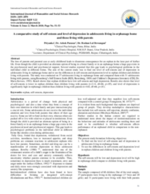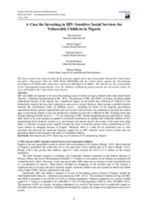Predictors of school engagement in foster children: A longitudinal study
The current study reports the findings of a three-wave longitudinal study wherein the researchers examined the development of school engagement and analyzed which factors were predictive of school engagement in a sample of 363 Dutch foster children.


